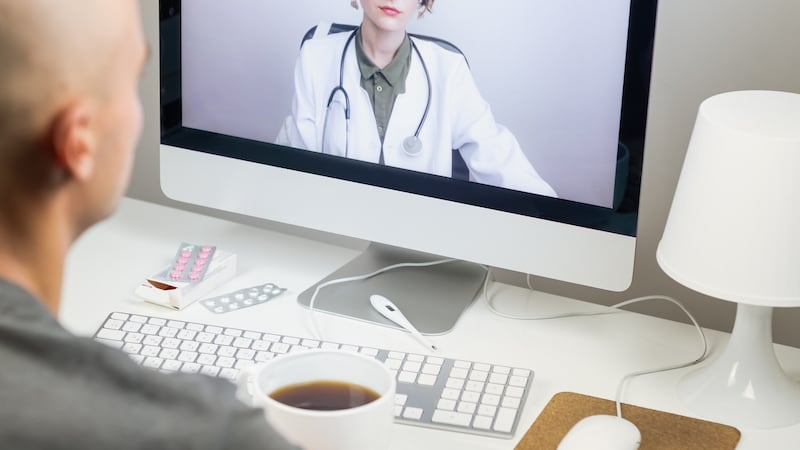Partners preferred
As life sciences become more complex and the line between IT and medicine blurs, expect more partnerships such as that of Takeda Biologics in Dunboyne with APC – Applied Process Company. The two work together to design, optimise and deliver scale-independent process improvements for Takeda's portfolio of biologics-based medicines for rare diseases.
Takeda was able to leverage APC’s strengths in process analytical technologies and informatics. “Through our innovative platforms and a world-class team of engineers and scientists, APC strives to help its partners accelerate the development and launch of their medicines,” says APC’s chief executive Mark Barrett.
This move towards partnerships is one of the biggest trends to emerge in the sector, according to Susan Hynes, site lead at Takeda Dunboyne. “There is a realisation that you can’t do everything yourself, so do things with partners. That is how the industry is changing and it is becoming a trend – you don’t always need the skills in house.”
Big data rules
Ireland's involvement in effective and innovate health research is getting easier. "The recent Health Research Regulations provide conditions which permit the processing of personal data in health research. Any organisation conducting health research, such as hospitals, universities or pharma companies, usually obtain consent. If there are difficulties obtaining consent, the organisation must apply to the Health Research Consent Declaration Committee to seek a declaration permitting the research, where it can be considered independently," explains Joanelle O'Cleirigh, a partner at law firm Arthur Cox.
“Before the Health Research Regulations, the lack of clarity around consent made Ireland less attractive to sponsors of clinical trials. Now, where there are issues around consent, it may be possible to get a declaration in certain circumstances and this will no doubt make Ireland a more attractive location to conduct clinical trials and other health research which will greatly benefit Irish patients.”
Medicinal cannabis on a high
Medical cannabis is a rapidly developing area in the life sciences sector in Ireland, according to Colin Kavanagh, head of Arthur Cox’s Life Sciences Group. “Following significant pressure from patient groups, regulations establishing the Medical Cannabis Access Programme came into effect in June 2019. The regulations permit the importation, prescription and supply of certain cannabis products for a five-year pilot.
“The initial phase involves the assessment of products for suitability for medical use. Importantly, it is intended that the HSE will reimburse approved products through the existing schemes,” says Kavanagh.
“Prescription will be subject to certain conditions, including reimbursement approval on a named patient basis and for patients for whom all standard approved treatments for the specified conditions have been exhausted. It remains to be seen how effective the scheme will be in terms of product approval and patient access.”
Medicines get personal
Personalised medicine is an increasingly dynamic form of medicine. With the rise of wearable technology, genetic testing and the eHealth industry in particular, new legal challenges present themselves, cautions O’Cleirigh.
“Some areas of medicine have seen more development than others. In particular with oncology, research and development of genetic sequencing and biomarkers means physicians have new and better methods to diagnose and treat patients. Additionally, new technologies, such as apps and wearable health monitors continue to develop rapidly. All of these developments give rise to new and complex ethical and legal implications, including licensing, cybersecurity and privacy and are impacted by cross-border regulations and commercial practices.”
Telemedicine calling

Telemedicine uses the latest technological developments to make medical treatments more accessible and suitable for individuals. It can enable physicians to monitor the healthcare of patients from a remote location, and online GP and nursing consultations for minor or routine issues are increasingly on offer. The overall aim is to provide faster reaction time, avoid hospitalisation and efficiently manage healthcare services.
Standalone software is a core element of eHealth developments. “It involves the integration of communication and information technology with a view to providing more accurate healthcare. Technological devices, like smartphones and tablets, offer multiple apps to monitor the health of people,” says O’Cleirigh, who warns that software developers and manufacturers need to be careful.
“Standalone software may be considered to be a medical device when it is intended to be used for a medical purpose and where it meets the criteria of a medical device under the regulations. For example, radiotherapy treatment planning systems and drug planning systems which calculate dosages to be applied or administered to patients qualify as medical devices but apps for general health and wellbeing that record lifestyle habits are not typically considered to be medical devices. It is essential to consider this at an early stage.”

















